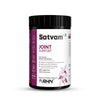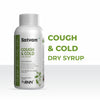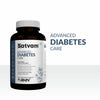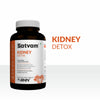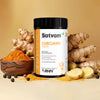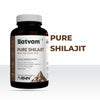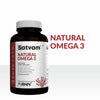Cholesterol is a fat-like waxy substance produced by the liver in the body. It helps build cells in the body, manufacture hormones and vitamins, as well as digest fatty foods. Apart from the requisite amount being produced in the liver, several dietary sources help gain cholesterol in the body.
Your body needs a certain level of cholesterol to function healthily, but having higher levels could lead to coronary artery disease and other heart diseases. Unhealthy lifestyle and food choices lead to greater risks of high cholesterol levels.
Maintaining a healthy lifestyle and eating right help in keeping cholesterol levels in check. In this blog, we highlight the types of cholesterol, factors affecting cholesterol levels, importance of maintaining healthy levels, and tips to maintain it.
Types of Cholesterol
There are two types of cholesterol as mentioned below:
- Low-density lipoprotein (LDL)
LDL, also known as bad cholesterol, makes up most of the body’s total cholesterol. High levels of LDL can increase cholesterol deposits in the walls of blood vessels. This could result in clogged arteries and higher risk of heart attacks.
HDL or good cholesterol helps to transfer extra cholesterol from the blood to the liver for excretion. This cholesterol is formed of little parcels of proteins and lipids that transport fats in the blood. Maintaining healthy HDL levels helps in preventing the risk of clogged arteries and heart-related diseases and stroke.
Other than HDL and LDL (good and bad) cholesterols, triglyceride levels are essential to determine total cholesterol levels.
- Triglycerides: Triglycerides are a type of fat in the blood that help the body in producing energy. A combination of high triglyceride levels, high LDL cholesterol levels, and low HDL cholesterol levels could increase health risks significantly.
- Total cholesterol: As per the American Heart Association (AHA), the amount of total cholesterol is determined by the sum of HDL cholesterol, LDL cholesterol, and 20% of triglyceride.
Factors Affecting Cholesterol Levels
Your liver produces cholesterol as per the body’s requirement. However, there are several factors that affect the cholesterol levels in the body.
- Family History
Having a family history of high cholesterol levels and heart disease, plays a significant role in determining whether you have cholesterol-related issues or not.
- Age
Individuals over the age of 40 are at a higher risk of increased LDL levels as their liver fails to remove bad cholesterol effectively.
- Obesity and Inactivity
Being inactive and making minimal physical activity can lead of obesity. Having a body mass index (BMI) of 30 or above puts you at a higher risk of high cholesterol levels.
- Unhealthy Dietary Habits
Consuming unhealthy amounts of trans fats and saturated fats with an excess intake of packaged snacks, desserts, full-fat dairy, and processed meat can result in unhealthy cholesterol levels.
- Unhealthy Lifestyle Habits
Smoking cigarettes and consumption of alcohol are harmful habits that could hamper healthy cholesterol levels in the body. Smoking can lower HDL (good cholesterol) levels while alcohol can increase total cholesterol levels in the body.
- Other Medical Conditions
Medical conditions like chronic kidney disease, diabetes, hypothyroidism, lupus, HIV/AIDS, and other autoimmune diseases can increase the risk of high cholesterol levels.
- Medication
Medicines for certain health problems like high blood pressure, cancer, acne, organ transplant, HIV/AIDS, and others can affect cholesterol levels.
Why is it Important to Maintain Low Cholesterol Levels?
Accumulation of high cholesterol and other deposits on the walls of blood vessels and arteries can be extremely harmful, as it can reduce blood flow and cause health complications as below:
Heart attack
If the plaque tears, it can form blood clots resulting in blockage of blood flow and high chances of heart attack.
Stroke
Stroke occurs when a blood clot forms in the brain, hampering blood flow.
Chest pain
Arteries supply the heart with blood; high cholesterol levels affect their function resulting in angina (chest pain) and other diseases related to coronary artery.
Angina
Angina is chest pain or discomfort that you feel when there is not enough blood flow to your heart muscle due to narrowed arteries caused by high blood cholesterol levels
Tips to Maintain Healthy Cholesterol Levels

- Consume heart-healthy foods
Making changes in your diet and consuming heart-healthy foods can be a significant step towards reducing cholesterol levels.
- Reduce the intake of unhealthy saturated fat and instead consume more of unsaturated fats. These healthy fats can be found in salmon, wholegrain bread, brown rice, nuts and seeds, whole wheat pasta, fruits, and vegetables.
- Increase the intake of soluble fibre by consuming more of kidney beans, oatmeal, apples, Brussels sprouts, etc. These foods limit the absorption of cholesterol in the bloodstream.
- Increase physical activity and exercise regularly
Regular physical activity and exercise can help HDL (good cholesterol) levels. According to American Heart Association, 150 minutes of moderate aerobic exercise every week is helpful in lowering bad cholesterol levels. Try swimming, walking, and cycling to begin with. Practice regular strength training to avail more improved benefits in overall heart health.
- Incorporate healthy lifestyle habits
Unhealthy lifestyle like smoking and alcohol consumption can hinder your health significantly. Smoking increases the risk of heart diseases by decreasing HDL, increasing LDL, affecting cholesterol absorption and transportation, and increasing cholesterol build-up in blood vessel walls and arteries. Consuming alcohol in moderation can help keep the level of HDL in the body at an optimum amount.
- Maintain healthy weight
Carrying extra weight is one of the major contributing factors of high cholesterol. Making a little change in your weight, as much as a few pounds, can show significant reduction in LDL levels. Maintain a healthy weight that is suitable for your body and keep heart-related and other associated health concerns at bay. Work on a sustainable, nutrient-based weight management plan for long-term benefits. You can incorporate natural weight management supplement in your daily routine.
- Incorporate supportive health supplements
Along with dietary and lifestyle changes, consider incorporating supportive health supplements for enhanced heart health and cholesterol control. Omega 3 is a healthy fatty acid that helps keep the heart healthy by maintaining HDL levels and reducing LDL levels. Consume vegan Omega 3 supplement to see effective results. You can also take Satvam Nutrition’s Advanced Heart Care supplement to improve HDL levels, regulate triglyceride levels, and reduce LDL levels naturally.
Keep Your Cholesterol Levels in Check Naturally
Cholesterol is the body’s cell, vitamin, and hormone producer that helps with the digestion of fatty foods and enables healthy function. But keeping cholesterol levels in check is essential to avoid coronary artery diseases and heart conditions. Incorporating healthy eating habits and following a heart-healthy lifestyle is the key towards maintaining requisite HDL levels and reducing LDL levels. Consuming natural omega 3 supplement for healthy fatty acids and taking advanced heart care supplement will help maintain healthy cholesterol levels naturally.



